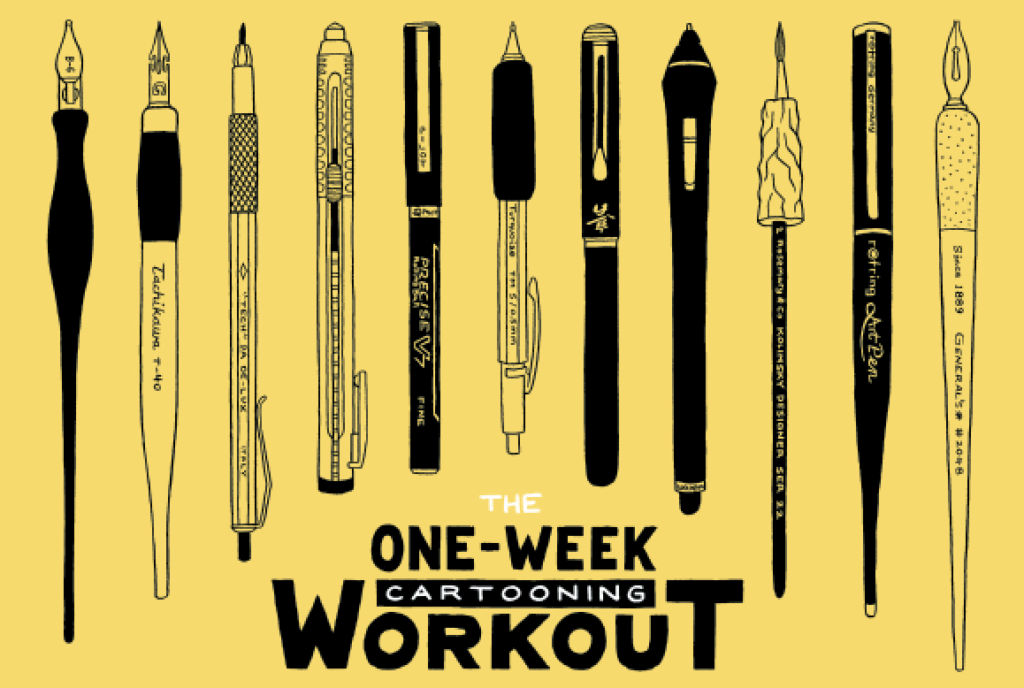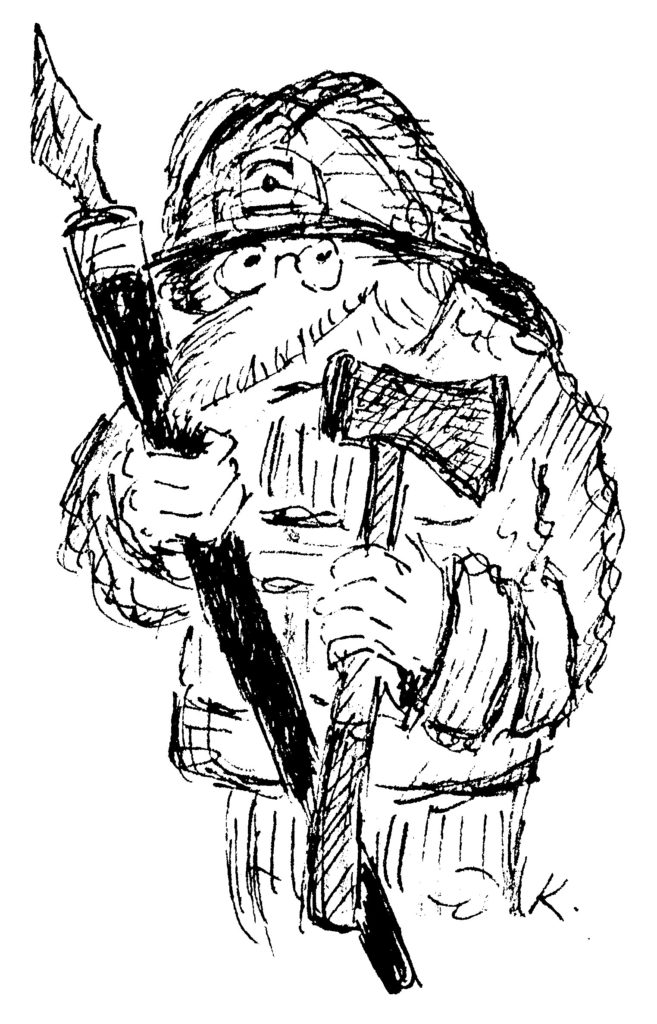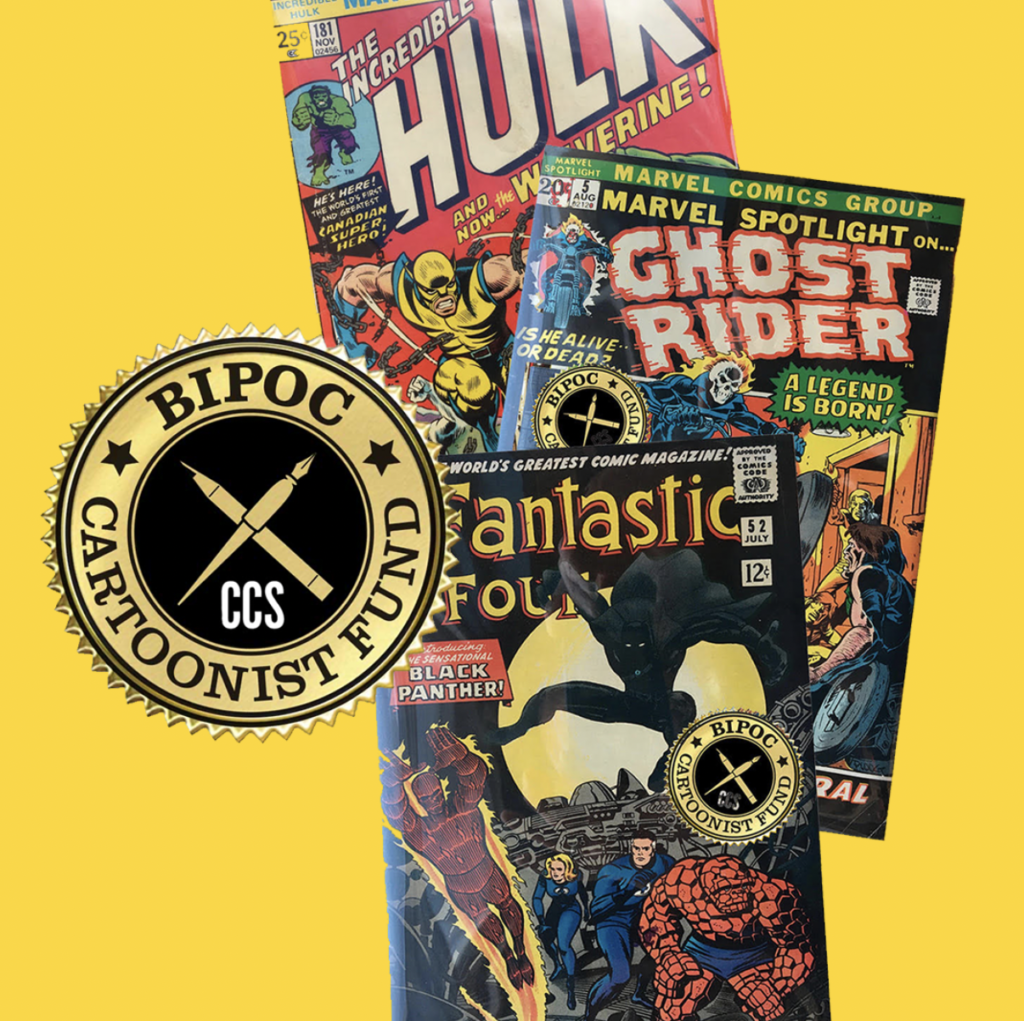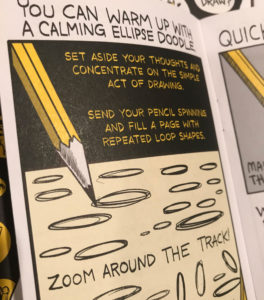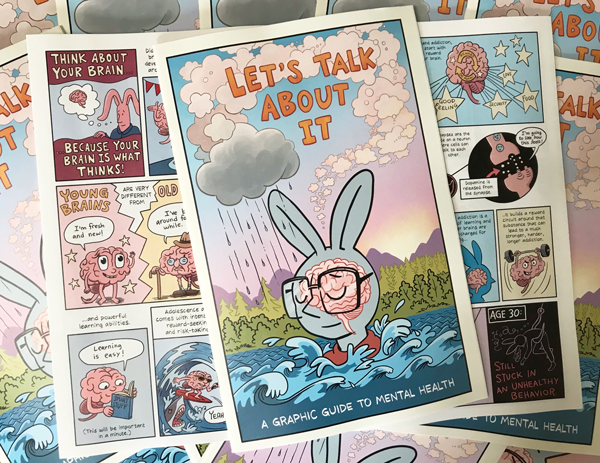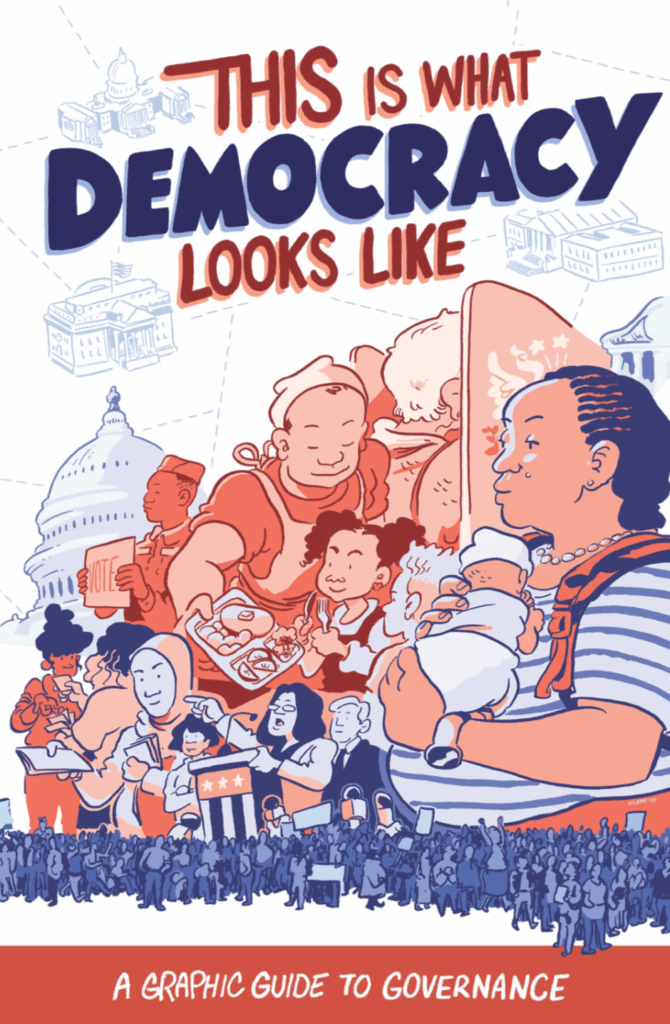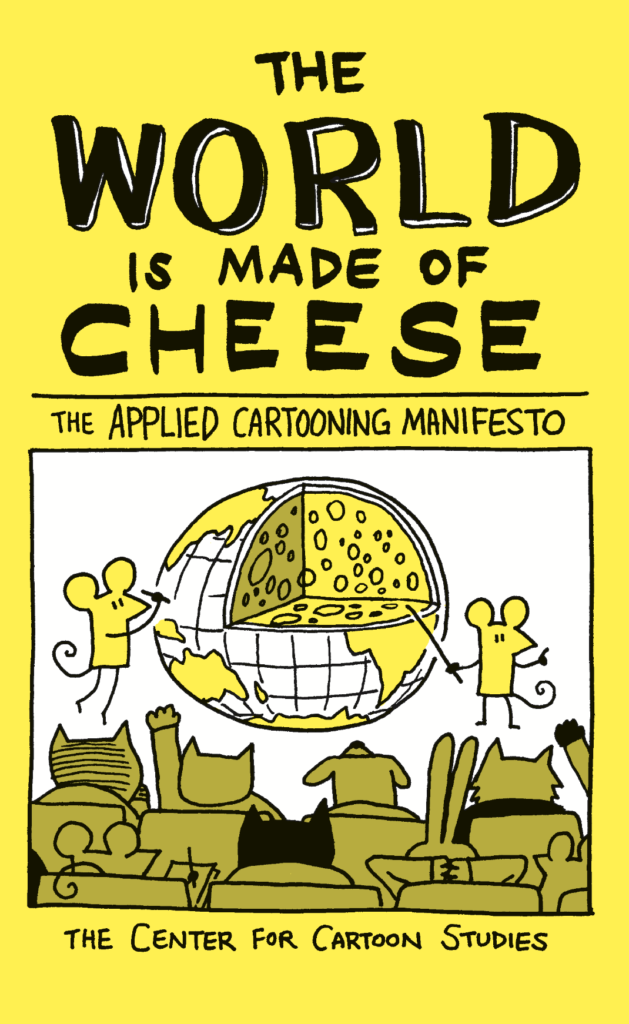April 7, 2017
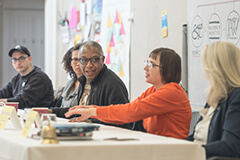
Industry Day 2017 panel
This Industry Day, The Center for Cartoon Studies was treated to a wide range of industry veterans from agents and editors to publishers. From the big comics publishers, we had our own Robyn Chapman, currently an editor at First Second. Representing the publishing industry news reporters, Calvin Reid is the senior news editor at Publisher’s Weekly, a weekly news magazine about the international book publishing business. Representing the big publishers, Sheila Keenan is a nonfiction editor at Penguin Random House. A comics agent, Tanya McKinnon came from McKinnon McIntyre. And from the independent comics publishers, we had Kevin Czap from Czap Books.
This wonderful group explained what the printing process is actually like for a publisher. For example, going through the math, a publisher prints so many books a year. Let’s say 52, in which case the best you can hope for is to get the attention of the marketing department for one week. The main point is, a publisher is a business, so it is run like a business. You need to work hard for your book even if a publisher takes it on because no one will ever care for it as much as you do.
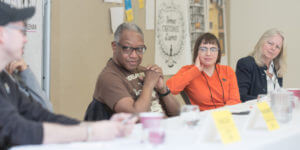
They answered some of the questions creators often have. “How do we find who we want to publish?” There are many ways: talking to people at conventions, following people online, following the people those people follow. “How do we communicate with them?” Like any mortal, they contact people directly via email or social media (if they have no other way and really want them).
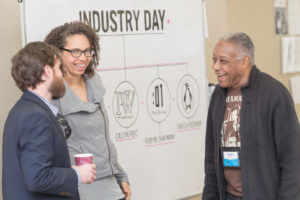
Dave Lloyd entertains Tanya and Calvin.
“What is editor’s role?” The editor is your champion within the company, getting the marketing department excited. They also work with the artist to make the work better.
In addition to advice, they proffered a warning. Lots of times artists treat their advance like winning the lottery. But it is much better to have a small or moderate advance so you can turn a profit. It’s hard to earn back a big advance, and if they lose money on you, they might not want to publish you again. But if you earn royalties, they are earning money on you and will want to keep you around.

Calvin and Tanya in discussion in the Schulz Library lobby.
One more warning: You need a contract lawyer. Though an editor champions your book to the marketing department, it is still their job to look out for company. This dichotomy is something a lot of creator have a hard time understanding. They think because close relationship with editor, editor is on their side.
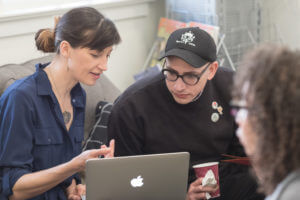
Sophie Hughes (′18) showing work to Kevin Czap.
With an agent present, they also discussed their importance. “Why should you have an agent? What do they do?” The agent’s job is to shepherd you through publication process. Before it even gets going, they make sure your cover or introduction letter is perfectly concise and directed. They shop your work around and have relationships with editors. A good agent has an idea of the taste of different editors. They can send proposals to a specific editor who might like the project. A big part of their job is getting the polish on your work.

Panelists lounging in the Schulz Library lobby.
“How do you get an agent?” This is a toughie, but they recommend you look at books that other people have done that are similar to your work and see if they thanked and agent or editor. Then you can try contacting those people.

Sheila Keenan from Penguin Random House.
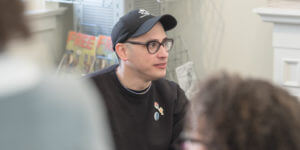
Kevin Czap of Czap Books
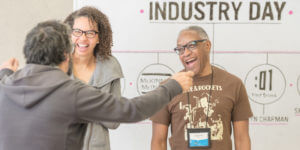
Liniers, one of the current fellows, entertaining Tanya and Calvin.
Photos courtesy Abe Olson.
Tags: Alumni, and Kevin Czap, Calvin Reid, Cartoon Studies, Czap Books, First Second, Industry Day, McKinnon McIntyre, Penguin Random House, Publishers Weekly, Robyn Chapman, Sheila Keenan, Tanya McKinnon
